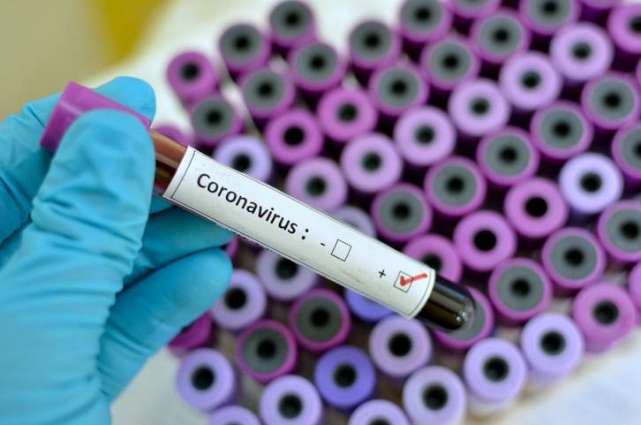Valentina Shvartsman - The second wave of the novel coronavirus will likely take longer than the first one, however, it will have a lower mortality rate given what has been learned so far about the disease and age profile of new cases, epidemiologists told Sputnik
MOSCOW (Pakistan Point News / Sputnik - 22nd October, 2020) Valentina Shvartsman - The second wave of the novel coronavirus will likely take longer than the first one, however, it will have a lower mortality rate given what has been learned so far about the disease and age profile of new cases, epidemiologists told Sputnik.
In recent weeks, countries around the world, especially in Europe, have seen a resurgence of COVID-19 cases, sometimes exceeding the peak figures recorded during the first wave of infections in spring. Most countries and regions are now tightening their public health measures, and Ireland and Wales have even reimposed lockdowns.
Yet, unlike in the first wave of the pandemic, this time around the world is better prepared, Professor Santiago Mas-Coma, the president of the World Federation for Tropical Medicine and an expert member of the World Health Organization, told Sputnik. According to the expert, there are sufficient stocks of protective equipment for frontline health workers and masks for the general population, social distancing and disinfection measures have been put in place, and steps have been taken to protect the most vulnerable groups, especially elderly people in nursery homes.
However, case numbers are still likely to be higher than in the first wave, he asserted.
"Taking into account that we are going to enter in winter in the Northern Hemisphere, and that cold temperatures are better for this virus and that cold will lead people to spend more time in closed environments, all suggests that the number of cases will increase in the months to come," Mas-Coma explained.
The expert noted, however, that mortality rates will be lower than in the second wave because we know much more about the disease now.
"Health centres are therefore ready now with the necessary equipment. Moreover, at least dexamethasone has proved to be useful to decrease the mortality in severe cases. Cyclosporine is another promising product," Mas-Coma said.
George Rutherford, a professor of epidemiology and biostatistics at the University of California-San Francisco, in turn, told Sputnik that the mortality rate could be lower also due to the fact that the second wave appears to involve younger and healthier people.
"I do, however, think the second wave will be bigger and longer than the first European wave, and, because of its size, may task hospitals just as much," Rutherford told Sputnik.
According to Mas-Coma, the second wave could be shortened by drastic measures, such as nationwide lockdowns.
"The difficult problem is finding an equilibrium between sanitary measures and keeping economics running. Total lockdowns may lead to the economic ruin in many fields, with the subsequent social problem. On the reverse side of the coin, if we do not take measures regarding mobility, the virus will spread non-stop throughout ... In my opinion, by considering the measures being taken by the governments, it [the second wave] will take longer," the expert said.
Rutherford questioned the likelihood of nationwide lockdowns being reimposed, despite their high effectiveness in suppressing transmission of the novel coronavirus.
"You may see some regional lockdowns, but I doubt that you'll see a lot of nationwide lockdowns, except in small countries," he said.
Mas-Coma suggested that authorities may reimpose lockdowns locally depending on the epidemiological situation in each area.
"Total lockdown is the only measure that cuts the transmission of this virus. All other measures are useful but are not completely secure. How to keep social distancing in the underground metro the people daily need to go from home to work?" he stressed.
According to the expert, another way out is encouraging the population to routinely use the newest rapid antigen and saliva tests at home and voluntarily self-isolate if results come back positive, but that would be difficult to accomplish in low-income countries.
However, there is a positive side to spiking COVID-19 cases, as they can actually accelerate the vaccine development, experts noted.
"The more new cases there are, the faster you can show that a vaccine works," Rutherford said.
"The second wave will provide the sufficient infected patients needed for the clinical trials," Mas-Coma, in turn, explained.
The epidemiologist stressed that getting a safe vaccine was out of the question, but the challenge was to have an efficient one, given that research data points to the fact that patients develop short-term immunity after the infection, which leads to the need for repeated vaccine doses.
"Reinfections are worrying, mainly those reinfected patients showing more severe disease in the reinfection than in the primoinfection, but also those who die in the reinfection. This means that not even infection by the coronavirus itself furnishes protective immunity. We have still a lot of work in front of us," Mas-Coma stressed.




